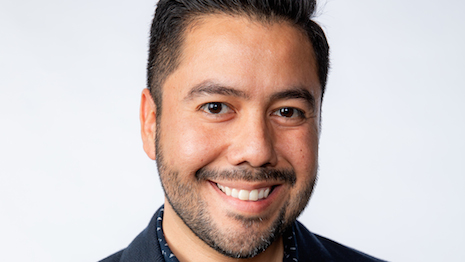By Steven Garcia
Today’s marketers are forever in search of the next breed of influencer. Megainfluencers, macroinfluencers, microinfluencers and nanoinfluencers are all in a marketer’s lexicon nowadays.
A recent news story even touted “the rise of the ‘granfluencer’ – the seniors who are better at social media than you.” Of course, jargon aside, it is all just a trendy way of describing what marketers have always done: use paid sponsorships to gain access to hard-to-reach audiences.
Amidst the frenzy, however, the question of what motivates those with actual influence is often overlooked. And when it comes to the world’s affluent top 10 percent, the answer is not conventional. It is not even influence itself.
In fact, according to a recent study of the Global Affluent Tribe by Team One, while 77 percent of the affluent surveyed consider themselves an influencer among their friends, they ranked “having influence” near the bottom of a list of things that they aspire to as part of a fulfilled life.
In contrast to social media influencers, who seek clicks, views and likes, the affluent we observed measure influence in terms of their ability to spark connections – and most notably – drive change.
These are just a few of the findings from “Rethinking Influence,” a new ethnographic study from Team One that is reframing our understanding of how influence works among today’s affluent.
Contrary to popular depictions of the wealthy using their influence to gain more wealth, power and prestige – whether it is a transactional and adversarial exchange such as in The Great Gatsby or Netflix’s The Politician – we discovered a completely different process.
Influence among the affluent is shared, an experience which closely resembles gift-giving and is defined by three main aspects:
Gifts: The affluent seek ways to share their influence, not amass it. Instead of financial transactions, they freely give their social and cultural capital – qualities such as time, contacts, access, skill and knowledge – much like gifts.
While possessing these types of gifts can certainly signal that a person is influential, this is not what motivates this group.
Exchange: The true mark of status among these affluent influencers is participation, not recognition. They are drawn to opportunities where the exchange of these gifts can thrive.
“Fostering a community of impact,” for example, was a frequently expressed ambition. For many of them, this meant joining a place or creating an environment in which people and ideas could serendipitously connect and spark new relationships and ventures.
Reciprocity: Beyond being self-motivated, these affluent are also community-motivated. The goal is not personal gain but rather a desire to leave a lasting impact.
One of the byproducts of giving is that it often creates moral commitments to pay it back by paying it forward. Sharing influence creates the conditions whereby these affluent can witness transformations that resulted from their gift.
With these findings in mind, marketers need to take a new approach when it comes to influence:
Give, do not take. Rather than asking how your brand can better appeal to affluent consumers, ask what role you can have in their giving process. Where does your brand have the right to participate, contribute and make an indelible impact on people’s lives and communities?
Instead of expecting an immediate return, think long term.
Consider Clos19, the ecommerce site for luxury Champagnes, wines and spirits. Clos19 does not just sell products, it also champions the art of hosting by giving hosts the knowledge and skills to perfect their own unique experiences.
Earn, do not buy. Efforts to buy influence among the affluent will only take your brand so far. The hard truth is, you have to earn it. Fortunately, your customers may be looking for ways to collaborate with you. Can you galvanize audiences towards a common cause or vision?
Look for ways to create an environment or opportunity where people can be inspired, take action and help each others’ ideas flourish.
Seeking to represent real beauty in all its dimensions for its #ShowUs Initiative, Dove partnered with Getty Images and Girlgaze to create a stock photo collection of diverse women, unretouched and unfiltered, available to the media.
By giving women of all ages, ethnicities, shapes and expressions more visibility and representation, Dove has earned a reputation for standing up on behalf of its audience and has forged alliances with credible organizations that share its vision.
Forge relationships, not transactions. Transactions put people in competition with one another. In contrast, the affluent experience influence as a form of alchemy, a seemingly magical exchange springing from shared beliefs and aspirations. How can you reinforce established relationships and form new social bonds with and between your customers?
While transactions are generally fleeting, relationships forge ongoing mutual commitments and preference for your brand.
Recognizing that today’s elite are drawn to spaces and experiences that actively inspire, elevate and transform, St. Regis Hotels & Resorts, for example, cultivates these opportunities in innovative ways. Events such as its Jack’s Club and The Midnight Supper evoke the spirit of the brand by bringing people together with the opportunity to connect and create relationships.
RATHER THAN searching for the next breed of influencer, marketers should adopt a participatory, gift-giving mindset that goes beyond corporate giving, social-responsibility campaigns or product giveaways.
Influence – especially among the affluent requires action – creating a system of open returns on investment where people and brands can collect, exchange and return resources, rewards and, ultimately, values.
Steven Garcia is director of cultural anthropology at Team One, Los Angeles. Reach him at [email protected].
{"ct":"yIkbcEQXioqdsqeW1IrGTdNa0CbsdROhxiH7YlUfklLLY+LDUXKzUrZ+bZviG+emTTBFfMex23ELqBqX13Oan4IgdRYmH41k9+03oKhDMsUzll7hVz0oah2C\/TnQtxDwgu8VD9YgGwDk\/FzOmuFeI2hVv5ocgy7qC5pJZ3VLajbz+PWjWGRlEqlKkMBMc2iKdV\/rGTnHwHPbF5zsOUCl+ER\/EqNuMWmHs+fQCUQsEx2sXYvUbznnetGS+r22Wo8N9XUHtO2J3yh6kVVjXVWWHOeB1UAPsGb81c9lJEfWw3Yy20XHJsS7yP9Aq89xdyuPHfmFbNd48G45l63urdLO6H0zgDAzUtcpsDoK\/5Y5G2lPdlSP1\/2Z\/QPmf4WU5mN+YsAxp5ma\/Jhvr7bD84OWVbTtn+irMdtsex5OtVJPrbSOnLJvbTJXwnRlPM30StVxw75R9NBp6UIwy44M11hFyeSV8Y+XmZcduMFb1M3z+0GmwSFLUeBAguoTn4zitwYeUTqvFg\/aVL8e\/YstVbgGVmx4tpIzRrI4Y7h7b5+xsvHdPzCzhO0okJYtuqBPGxwwm55TH+oM3J5I7AJTZ\/bgg6zJcosekJ\/vHTDcWgCHUela\/ZzPzYykAxHQ+Kx0V3AmVLAGQUZ1M1by2Y8AIf5uqDDA8b0V5bZEmFwDEI2rT6pcc9Ql3BV5\/2d9xFNyCUoGaA3Gd4f61UikNzyqwLWM6dm445Kx6zuc7QcdyQbXeHFvhuTG1AwexDRd7r6TwfvAI8ayO7poVaz7l1UomTbFs8g+tkC0ftLdVZ2\/pmKkbpNp7DPrWnSuhCogRkN1gGGsen8UwhICAAPFtvxJ+BsJQKC\/qelyC5VYc9vwvuLaZ0XZiU+FyShNzfM9MqDAaHAgrdny5JkBYzlh1euB+9m3kJLVw7xjO8pYecLOaU3H4ZL3xQpdQx8ckB+HEcWiBh9rBAvL\/Kmcc0oTK4Mc1SG\/ZiSt11xNe9X1vqqGc+lzAgt2FyHa\/SQZLc3sg3fVbGYGrtP2RDR2mlw9ftpnuCRisHCZYsF4\/2JbqXwO83rVEpje\/KLoJ8GUHKsDiW36g\/VVGgImK\/vKp1tOQNywcrjL6kVhxUJkcUaPBszvhvDuUcbMD+sngX9bBuzRs1rsORTf8sB1BWnTD7ti4zLIRR5pCq417lKcvdkFsMhLuTJ5sRPt5I5r1cH5pQ0zEZtobhX0t98YQ35izXndQE6HXo6577yUPpzN1WQFLyT9dQQB7OFyggXEiEXOvIm9d375jt6r+ipuqaeFmj5snJ7Hu7kCOT6bBLLxf5HPg73o2BoHWX3jGsJObfpPy9XwAhdeLAjrvjhf8ED1APp3kavmCCNA0A3JmYn1ld8I0bgTGVNgAW0gMQtPWJ8fwMELwfSwhEWeQmfHI\/ldM6z0Cpccs2TotRaWM0k1M6Ad9LYHOfkVciE9Ai7ml0v5iVDD0OITo6zMbLA2hsfbdLHL3IXb7981iY7QwDVQGoV2n7zU4tG1gERhNhm4fIag5ZuyXMbtfrqZ2W1ozqmLwtwkrwP9SoPLkLQuUXb6nL35hriKGEzbQJowPvwDfGfFhMbKGnkS4OpmzUFUVE6Gys6JhLXKbDCP0Xyf6Zn0bjcTO\/Xbwe7ff1JXaoBGY7UH37m4P0CUeywfAoVkj7oLAhG7WJ5xj0ili2MsAtkOBDkGFzmeLZDNenNGWXoHNh0TQ8GbBJuxRGAvxi4Khv9XIgWQjGTptrFVX5QmOL2fS9M7pBo8GlhPePr+xnyuSQ2q+K3UER3O1mx0BbwK8yOnnHt82QFskVuN02STaEOnlTKmw\/0MItlAUde3zFXYA7Zexccf\/CsU+ksmA27x5dMVqQrRP9MNeoTRlG1utVaDHhQjOVUfAX9M7VuJQCxBMzfuaMNv+3YOkkws2ToMetyfp\/Xy1DwidGoP+mJTSDi5eZ3n9+f0mBF6q\/La++RQt8KyVc6xv8TtDl\/x2kaAsvM+4Bb5cZaUF3ctDNDmFBEwGn0uMVxVEXx4VWcjcBhCZbpQbm5zekBIa5L4z2gMtZroDbsGwiamhtpuMbkzB8A6oDmpF4DskY31WPb5YOViuWBm6nwv568l\/cbiW7V\/kcinVFoK6eSLXHUx3xgQUMPolIFkkp+ZtK3QYjvAis80At2aBUG2GJQHi3ZsG95EOs\/G3\/nSkq5DJlRNa2SQ9xeqUiXmOSnmiNjIqb4BwMz0HfgeqYFtts2e\/NJZRusLnoyVmJJPT68sE8vPcZ8tZZeVbJbcThLP4GtXcc31OGY2uD\/e18TyKwaYZOn1lJc95nRTeCMQlT6nOVvzFr0OdYsQsSPrNBItu4xHY3KrYmcFQcFSopAA7q\/+ho6yu0M\/1TDIxuK2+tD62EZq8V+Z7WVGLHpa0qPKtwZ0wqLKK+ofTQ+M2lXZlNOqgpdNGG7twKAwQ7NCn+PaTZAafqK1Ystj+A+gY\/eqgZj21pmKId9btcPe9rGfXwmEAn4UrlcXSoBbhntkbWj84HmATiffpEr1G27rY78ZyQRmGZVjKbFzNL6T6X+PtX8kwAWX3qh5uZm6GdQs+9gJx7K3SBGsnrNaIs6kY0YptDBI\/qFO5SZayEmxNX5qT4wvyPHaWToY3nLMco\/J\/GkHY081S42Fu84XPDHhk9J2J722w9Wc6WIg9lHGLIGPM9JWRbR8UgATEduidECx0hH2GtQf84TBy9v+jOFFZoXuRSvm7k\/WwbGBM\/nUQ4ViGu5zy05eWgu4O9a6BtO+z96JnXObYHkm\/ECnW7dTkDtwxrobsoBQnezzgCYkU\/+8\/FiKnMqmCMX8gbGXKD\/rWLDMQHoO7+x0bv7DNu90owe2BmjmunRJCqQv\/HTOtBqAbX62jVcRv282MdXYFlBYb0YlP+BFfc8rBdfsMyUXSSeIESU18YhXnhexWglLCLon64b9hjA6brSdO4DRinQvNOS84KgfHCto1yWzZgVe19s98lC7Y8HIwTLOM4qD0iCkgrqjSIpsKaUliemX\/Km4uv+1vpXQ6qhnntCS05jLnj+IIx15\/roNMiC8FMOjyqV2ydVlRoeL6B3RL6E41J3MQHX7DlngJDl6d6CFj2ew4hjJq7y7P7t4WEBA\/JE8PTcjY2q5cjtYmxp2n\/oNXWyNO8DpLpKQBlVlp+kOfuTqE8b\/cPSUsNExBkMJMavD1jGNahCc1Grykgd7+7rRejv5wWoHkQrNPCoS9xJRe0\/wxd7bpsZrTiZGkG87Oe7QW5MR5rmxEU4N5cAjr8oossBrpt8Hl1IZgj4ciYEeJs2NxNRVbzm3+wv5ETFXCkvujM1OAkWR4oZpkj+vmneJWj7bT5QYJb+tK2V6lhrcUq3FL+omj7RB2PZ9g+NUbjHWQgcL5Xq6vMNxWnxdWa4G0hv4R\/SpZCEaSBhQgHEl8gu7Mrx6q\/xeNw6yZJtCWU04EixoYSFtV+jZ2Byk5BQgpzbwKp3vui9Ck4oOt2dcOItS2Iy9sydZ8kcOOH7vZrcguvU+okMjtzVQwPbNqC\/MlBNB7cOtl9Oy78WvttgIqJZZ\/RZ7iiksWsVILC7wMuCvw1XF9\/vUvVtehVriqTPj71mFlFZ66GqOQOhqn1pqAWgxkCOM2ttRmiWhQ0GlulQqDe\/\/G2f7sjaAZDnHqDH80w9hNCxWF+P+WbI8gpM5Y0PHk99H8oJQnHWVthhG76hwftNHLXb2xAijEYS71IC6CWH4ppas1qzkA9B4RRHyaraiSRZt7Ae7eL3I\/A91vq9ldMk6p6ECQAQVxsXXMzSEE5MePYrB\/gr2AGQwlpgn7BUaOnaFFqAH+H5yxtmMEx52pk63oU4YFCDHfVty8Afg\/j8rWCAJrAnKrP4QMAvN8PYC8S34XaN2m2dA8VO0Ci2WTp7wLyKMZoQJ6rchL8XmR17s2m3bTixoQmeeHmW+UNt3TDemVqB\/d\/d\/GcWkxO540xMBYVooNItz7UwccNIGPc0iC0e1MULC0XfEm193veE14RIRvauhCLgh+0+dwLf+xqW3Q9GqzrMZ59fWIUdY2NxCMTwuLcMGu4uwAjStERd\/2tifK3VvZKmg+KvS5Ww6q9lZJlXF8uTyMfrmYOpAf0zBATazviLuSGtgl976u7dlM9fEOLLaQRny3eJOXSSk5BkiQh8z02v7CV9MmqUNMqpeoLL+yEv8Pq6\/OMd2fy7eiP4pbwHq8IU6PhUySDx3eb2PZWXUFTiBIw4K2YpW5CNbiBcdQN1G\/WzReeveYFT9ReTmLn06wp+XuhvkqAiprF7d9Rmmn1GdY1Bhx9ilw1t0LGal43mWNMq3a5jnc5PKQxURVEQy2u0CyqhF4f6ZVUC5hf+7lUdkj3X72LEaFv5WoJC1NP1S1PbpZcEPZ5Xc46bgLQeorcV\/ebOCIEjlHo3BxUSpLglM\/NRyTCNayvz0TtSdVayr0t\/pHuHMfWfGNhUpNSePyWy84ZuTJ+emfxzxnTwr8J+YvxpYiBMyeJElkfOMsA4ooMrJ7aKx6LEXWp0FekBWZHOs+3HiKFEdwPqiRp05N39S5XYdwa1DF20aZoQwQkwfgImcr5430KC70NOoDeiCSB2TceGkrVnH8Qss4frTsDMRS0eqCu548J4zsogu+cTzkPkL2+79IkePsTiqqk6cOhw5rdVTZRXRo3ztucRSGSE8+4oQWev4YG2IK3MY\/tXZQxoJpq+3XJEU7PkaKmR9ppg16b7+\/WmVYBnz7TThe09QRJwTYlo5IKwyEsPmdInFOfKz+ZZFwFxGxelLV5EAROlSCjmpg9Grr03rT2szReXQjbjjcK\/iuS9eDBcabflMBBbJIdhSivPqIt5zZLAj3XuRR1Dk7A\/i0uF3lF6WR6Ku4elhKV7Sj2KlG\/jDtypU9H61o5bVomXXVVHqETqjyK5zDCG0UqZDQYL4zbxJ4Qdwqzu1D0LHRprkSC2QxcKd+MxZFgGsSL4PCiCwI\/7aS0+cm9FH\/gdFmuz6NZxF97T\/L2WpLPP7IPDMJzlBUfMjomJvq6tsIFc9PsedJHzb97UX8Twvvq5NtYxk8yJ7jwb602KgKb9NbWUBUf4bz7gcpuzp+P+aTmy+814Pa58N0UH53veNpMaE6VOXqB9z1vF6RGRgRw9A9WQvb0PxwdOCq\/ZFC4d+2CAQ7IQdfwc1Sb\/qr3OSS65VrjZcI8M4ty6BLN23luLnJLcVvSKO10+Ry4fi\/BEXjiLJimhOi\/xlzx5h+sWgv+tOlG166pl2ubNWE2\/s+ANjq\/GS0U1Y7DD0JaLfloRcdhDU8LbJBczhmRiD4bfCjpYhB5BtdGEvoEDBZPz0xklaKplC\/QfrOBdmvs+\/VliSMOazsZkxssV4VquS5IXWUac+PgxYzzHm\/1QqspkWReIEbub0WDUocdNiqpeNXqAp6EBEdPJWCDVbsV2jns7B6Lz+q+lHer3sBB43BiyZq8Q19z8c6B4Qq2cYIh3eebuUOyGqmEgiS7YfOj7qQ6Ek3lywkQ7Az2xqAo8jJqKiKYeOJ9gxsw9WaRMmFYcDLKFOP546gReWCrdPRe6EpQgI\/cltcNR8TJGkpEYgPAcAt2wcKPPPP8V\/S4\/QopYOFaK78lhgryq41nulZeXgFjvKGsTYQpVddkWuMZq3m1d3YZfzKzk7U4q9TLxANF5Rmmq24QW\/\/amjHkT1XMVNKwQFOX6IH3AcAF3FV2KO5DjQA7XniS+57UlM6etfcz7hqRisMbhlzH4XG6pH1MkGwe6fzGBJpsnz7bzuT7V0cOKx1x8Qk3lTFXw2E7NFR1lw3uNc1SokxXXjpYaDPcb7SnoXrllE5JngXt8gLH9dHKIVDRqzlTRst6G44qQJnQp8a\/nk3hzhgZhQjiqmlhawofCrO7is\/bUpa7blh3F\/ZyjN1v8T89S0iGB3iYQaVw9SgH+xC6Tu9BRpaOOE6GhCGrMYFHf9RoezmLMZ9IazoC8dc87tSyydmPfy5PvtwkQyaJVr2h8G5FedMAPG2KQ8BXezCYiX8U+URSnV9c+yHprZz78UoL2AZn\/z29tR4HEANA7X9u3oFsDriaBxB4eXk2YVDutMhZEHkr8+UhFLS\/6ZbSSeDEVXTn6MuvffNZq4z9MwfxSLr1TA3yMvTyuWaS7uTZuTiUklOeboWCNsFRqHECExfvUZ9KcCn2jwBH8ov9jy00QhmuRnS0h1r7pfy2Lj8h8N+QtZDJ+OQPEWc7EDV1DBaDWf65wpVZrifQVBffRbx1IHgFJaXQRjzdGXhywQvfqWPOJ3CFMbeM5j\/wcqqNa3SaZwa4wrnb1RAH+JWHF1+llc7c7OV2EoswSuaDN\/YMwdXQAG3bLnZtYS7PzOa4LtYTqFzRGhU+As4s7v9Fq16AAVkiXbrFzlElf5aAaVTCqKBXP7F65olV7EbpxMNod3IKy2Efd65K4iArNo0OUPOSTPAGfo96UnpiHxtoMhbK3HnHJeazKEKzdinK3xZ7+ZYhfPYloCcq7M45kESa86zC34k9yT0LA7MWrAbVQTIFa6XRkMq4ofrKwUw6FMxMXht6gng8AmMEIQjESpC3\/sUZ2zjtfoKUM+3xhT3uUibX70NZQFYGGB5qY9pqPIeXhyEzuky0QJguTPFqjpglwJdewFU6Cyp89Lg+y34GcPq\/inUc\/ifiTZKZBOY47KU1GjB9f8J3MLTpJLYXAaTw4nKzkihOpjuO5OPBh9UZR\/HboERattNNU6kfMCk\/HvqFa+JgWL6Sw3rqUOEyoL3\/Ttyh0H4GtEUVugQSJDefCBwUjXB6Q3sQNu7+\/5llbHbWp\/ACWvzxLWtXM+92fkgHShu5cgWBT2OHuCqO7cGNrwWb\/rM4NAbpueorlZI4VNE4e3RvI2ReXOovgb98A1zQEqoZETolqdIh87\/PtmLhpPSU4ZJ8GsoePNywYqUrZUhJ8GGrNAotGPADpqcHQ3TrU28hs69exTqBhbpsZyzwGc876lx9MAmr4oCx0BwJ15TzQHEjT0KrEKKg7ORpquQyQzTo7N9y5XjsRd+EwO9KLWLwLnbnK2Mcu3y3O8T82sk+U6MvyiwocFXIlJ2qgvcoBGAr8lElZ+oKZaJVHZJqRcECMkT1ZkG+LHoD+rcqwswPHVosZjfznge4GPUiLYfPsn8wSeVJBC14zjxh13BI\/AhsDr064d2d00kd16vMzVhE2PRy8C5e65pOPlfFjdy6Usi8tV879\/VROQwcFTba9h3KEURe5ndrX2VQOTfxGat0waxRMC02d2RrwNMtiFvEKjOw9nRdzpKfd5ultyMlU5z7MEGyvCWKEqBmqa0oZ\/X6b4nIwlaObyc21UR1dxloZ2ei+ta7oZjX3Rn2+iH7UjmLha4fswrsOaQZkQYB6fIDtSeU3tIQ1D\/uvTNJCOj7RtWALwlVW5ZBf0gdzIJ7iM8iQZo+tW+cD1vnP5I1TTDsx6h98Z+df\/1wphLwyI16Nck4oNolb2JiN+BRPQoomme70qaqtfcpsJAX46RAMT+vbRx2oDU4B45oCsx3BD6a9T7pHOjWeT9JmUXWayXj2R3aYBAIS\/XqUrxoXHWJOT4UZ6IACMjuR1pAwflbgG8yORhlqT3EJDWlbOe4IioN\/rdpC4qC\/WH+hmCEq5VSjZBBXqgFdtiwW8Aq+HQFiS5CAhoF33Vqr63\/FisYB3DQFqp+renpDfYM45Vgf8P7FbIcJJM3pQUJjRMY+p1jl5SGZUN\/Y6kFvAnf2e8sTkrPECRPWv4dKu09cwhXlHyhOxKDKZcfo1deRbh3ZhcpV03rQM\/DaJZioCqm1KvKVjypfCm+m4GVSIz3SZpWzddOESPVWp2WMWDHhVMztKqy211+xleMg5xYOhT32YUpz4Tx2\/dl6JQJnXJXiFOYfniVSVVz77d3xRrHjJ0\/0TX5ZnO1rvL\/VEan85vgHr8+A+tLwMtQrrDyaNJMYjj0LLnsc17+eFWtw6BmvJo0gitDXCqkepPXogmhBLg2no4IrFdu\/M4C7nO8VTXC9nTQ\/iCU+bcWp5pAo7Cp\/8K3CvG1ViFJL1FE5eNfsxicsNhbpHHz28\/hpWNxL1yHByxdWcWY+Fl3NbvFduSyKmdqCZpWU6gxD+Vwsrnu1SQU1gifiWMfF7MG\/+\/2bmS97srMcqXToZTtBK0ZRkt7hqO5cbN9o\/kQg9zLuPLmGf3Z6GZcIYxGgdlX0pWXvmWzXIWR2M0Gzf\/PfLFyd\/ZRSNVR9IFbxEDov5S+\/N5G4\/EGb6A8clgcih0BsqQjrLKdg7j2Eb5DE70jel+DoO6+5bvQyVJFqOV9TXmZC\/7S8JXG6tlE6vZ55OwTKgLCVmfE4x4M3htovBNKn0PHZwQ9Ga8xJ6AdpDlFlZs4j0gSiRzSzrDoKluWoqivnkFrLOlPxTNnWZk7t9yUstZZ0GslJTMI6rKGc5bwwuf+gXY59Hp69NYQnPg7PFfTvv1Qx0HdvM1UjbkuL\/O\/VcS7h5hjEthF7lAaGY91duwpC6jL+anm2GvGyF2UMSl4F\/5FTTtpFWQGD6QWtoNodzuIsedGzRhu1ftxI1opyDMOVGhpKD\/lc2tNrIMd7qkkJlVfrjIUk4WG034RpfbgRe5EpQmaJOKegeJAbiNeYxMv2XBbp7rrVfJwFTcV3Zcw1nfmtJ5Zfpaqm9b3U07uByYtWoriQ603W24yGRrOIC8y6fhqb\/aEP6LKLzBjA6Awq4A95olqMe6T9xes9lNSzeMkwVrjsLSct8\/qiyzJa1C\/kVmhtFQOvJxmsgLo89Ysjvqz2ev\/LiT+IrVa7bgZiURofq+s2EpTsXVO5hNVFPNBJ1HvLjRjdE2vqU3tUJlrGdcr5E\/RM7MbVJF7j5bDR7ALk62b\/fKiqqL7vAhhLR1mKfnArnXTcl4uuK\/n8uib10uRTFvKqPTEcAM6NePTkZhRBjG8o1asJvAalk2jrPj\/MCgYb+qnLiKK\/x7FXm6\/CreSKapy7ZikBxz5vjvHyuTD1Y+t0zNjN+wXtIXCm79WjIqJsekc4NzdxOCcMvL1M40\/tznJ3gJZqTbypSb1ymaSBwXiAQoy3oYf8ZAMFgeoe1f8cz8tcfk1w=","iv":"ce2c11a9baee410b90bb83371c72b971","s":"0d9b96f54b2e39ca"}

 Steven Garcia is director of cultural anthropology at Team One
Steven Garcia is director of cultural anthropology at Team One